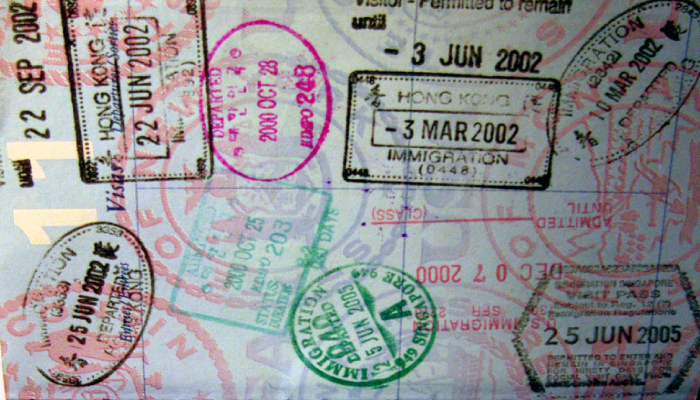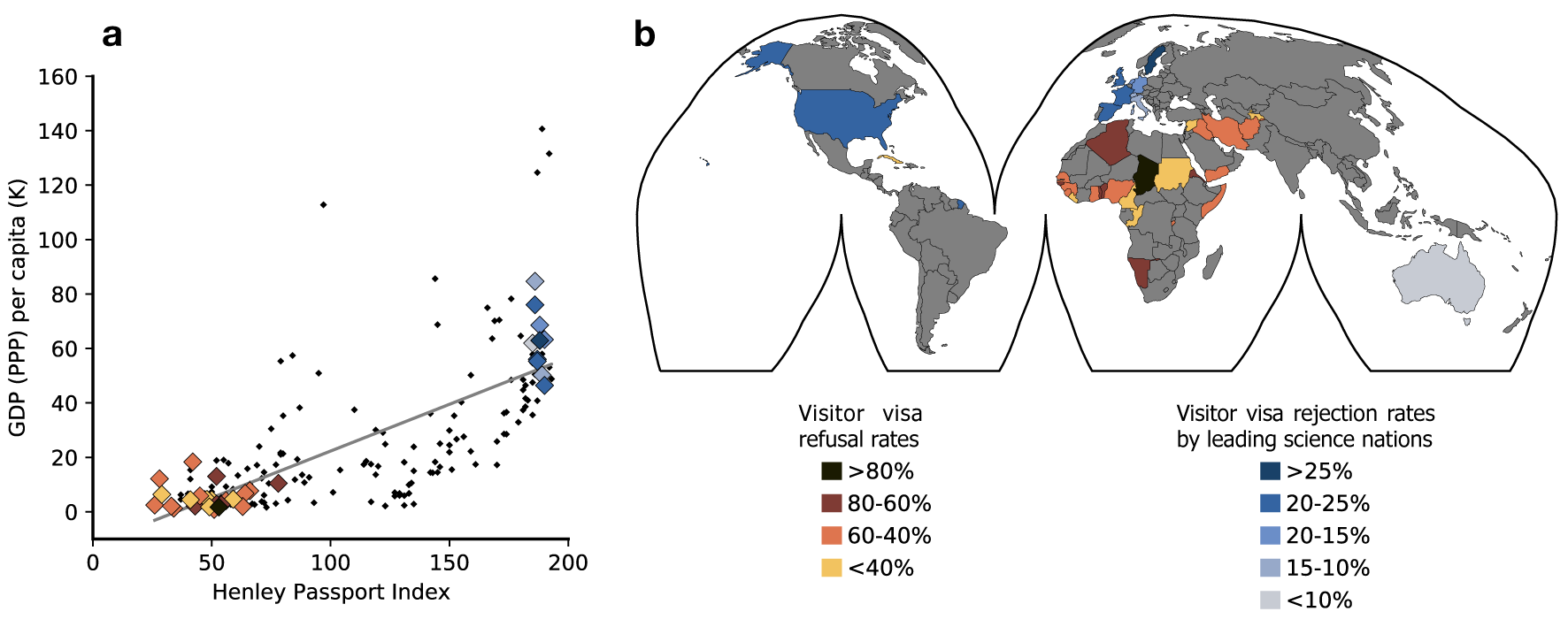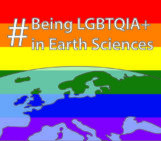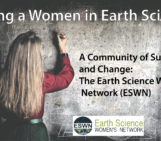
When international scientists from countries with a very low gross domestic product (GDP) get together at the proverbial water-cooler, we don’t talk about the weather, we talk about immigration. The conversation topics can vary between navigating a new immigration system due to an upcoming move, issues with our institution’s international office or wondering whether we will be able to secure a travel visa for an important conference or field trip. It is in these conversations where most of us find a support system that cannot only help us sort out tangible problems, but that provides empathy and emotional encouragement to navigate this complicated system.
Living on my own as an immigrant for almost 20 years (Mexico, Germany, the Netherlands and the U.S.), has given me a unique perspective to deal with different kinds of policies that neglect and exclude foreigners from developing countries. This has allowed me to form a network of friends and former colleagues from across the global south, with whom I share a similar journey. However, one’s citizenship and residence is a complex problem that intertwines with ethnicity, race, gender, sexual orientation, socioeconomic status, immediate family’s education level, language barriers, war, political persecution and chronic illness, to name a ‘few’ aspects.
In a recent correspondence (1), I described how although passport rankings, which measure the access power of a passport, are not commonly used as parameters to measure the wealth of a country, there is a clear link between both (Fig. 1a). In said correspondence (1), I also explain how this situation disproportionately affects international scientists from countries with a very low GDP under the ‘human capital flight’ phenomenon (2). Unfortunately, open conversations about the disparities that come from nationality tend to only happen amongst individuals affected by them. This also means that we have very few role models who have overcome these systemic issues, especially within geosciences (3).
Figure 1: Global index rankings of 2022. (a) The gross domestic product (GDP) at purchasing power parity (PPP) per capita (U.S. dollars) (12), which is the GDP per capita index adjusted for the cost of living, plotted against the Henley passport index (13), which quantifies the number of countries that can be visited visa-free with a particular passport. The correlation (0.70) and linear fit (grey line) between the Henley passport index and the GDP (PPP) per capita are reported. The top 30 nationalities with the highest visitor visa (short-stay) refusal rates are highlighted in red shades, excluding nationalities with fewer than 100 applicants in 2022 (9). The visitor visa rejection rates given by the top 10 leading science nations are highlighted in blue shades (9). From the 17 top science nations, as defined by the Nature Index 2022 (14), seven countries are excluded because they do not have up-to-date rejection data available for 2022 (Canada, China, India, Israel, Japan, South Korea and Singapore) (9). This figure shows how the scientists from countries with lowest GDP per capita (1.3-18K USD) and Henley passport index (26-78 countries) are the ones that experience the highest standard visitor visa refusal rates (36-91%). It also shows that the top science nations not only have the highest GDP per capita (>46K USD), Henley passport index (>185 countries), but also high business visitor visa rejection rates (5-30%). (b) The geographical distribution of the top 10 science nations by their visitor visa rejection rates (blue shades), and the top 30 nations with the highest visitor visa refusal rate (red shades). Most of the latter are concentrated in Africa and the Middle East.
Last week, Dr. Katalin Karikó, who is originally from Hungary and immigrated to the U.S. in 1995, won the Nobel prize in Medicine alongside Dr. Drew Weissman for their groundbreaking mRNA vaccine research. However, while most news articles concentrate on their discovery while working at the University of Pennsylvania, fewer articles discuss how UPenn cut her salary and demoted her after she struggled to secure enough funding for her research (4). In a 2020 interview with WIRED (4), Dr. Karikó recounted how this happened while she was diagnosed with cancer and her husband was stranded in Hungary for six months due to visa issues. Before her time at UPenn, Dr. Karikó worked for Temple University, where a dispute with her boss led to them attempting to deport her. For anyone with a similar immigration background, stories like this are both a fear and a reality (5-7).
In a world where even Nobel prize winners can be abused because of their immigration status, scientists with low rank passports often decide to leave academia. This is exacerbated by the fact that international scientists are less likely to know the subtleties of the academic system in their host country, and how to best navigate it. This makes mentorship especially important for early career international scientists, who otherwise will have a more non-linear trajectory due to missing out on funding and research opportunities.
Ethnicity and race are not nationality
The statistics available only inform us of ethnicities in certain countries, and fail to distinguish between different nationalities (3, 8). For example, one of the conclusions of a recent study (8) based on ethnicity was that heterosexual Latin-American men are the second group with the most career advancement opportunities amongst U.S. professionals in science, technology, engineering, and math (STEM). However, their findings could just as likely point towards heterosexual U.S. men of Latin-American descent, especially since most U.S. grants, as well as some job openings, are aimed only at U.S. citizens and permanent residents. These types of requirements are not exclusive to the U.S. and exist all across the global north.
The power of your passport
The U.K.’s Royal Society (9, 10), recently released a report on international researchers’ experiences with visa applications. They analysed applications to attend conferences and other short-stay scientific engagements, and conducted a statistical analysis as well as interviews. The report quantified an open secret: the top leading science nations disproportionately reject the business visa applications of citizens with low rank passports (Fig. 1b). In particular, the interviewees reported (9) that the U.K. Visas and Immigration (UKVI) government body “seemed to operate on the assumption that anyone, regardless of their background or position, coming from a low to middle income country is more likely to be an economic migrant”.
The visitor visa rejection rate highlights how getting a study or work visa for a high GDP country is a difficult, expensive and lengthy process, especially when you come from a developing country. International graduate programs sometimes fail to consider the amount of time it takes to obtain a visa, which can prevent the accepted students from joining or cause late arrivals that place the student behind their peers. Delays in emitting degrees can also hinder job applications, especially when the position has a fixed timeframe and a degree is needed to obtain a visa. This is not the case for all immigrants. For example, Canadian citizens living in the U.S. do not need visas and have an expedited work permit process. This is not the case for Mexican citizens, who need a visa to be able to exit and re-enter the U.S., nor for Iranian citizens who are restricted to single-entry visas.
How can we contribute to true global science
This list is just a simplified guide of how to support scientists from developing countries. The most important advice is to provide mentorship, to listen and take the obstacles we face seriously.
• Reply to emails from genuinely interested early career international scientists
• Do open job calls regardless of nationality
• Match the salary of international scientists that come with their own funding to that of university hired scientists
• Promote a change regarding nationality requirements in the committees you participate
• Support your employees when they have problems with the international office
• Try not to organise conferences in places where it is difficult to obtain a visa (11)
• Provide support to international scientists that need visas to attend conferences and conduct field work
• When organising a career panel, present opportunities that are relevant to all nationalities
• Create surveys to understand the true demographics within geosciences.
References 1. Talavera-Soza, S. Citizenship a determining factor in a geoscientist’s career. Nat. Geosci. 16, 550–551 (2023). https://www.nature.com/articles/s41561-023-01221-3 2. Pellegrino, A. Trends in latin american skilled migration: ‘brain drain” ’ or ‘brain exchange’? International Migration 39, 111–132 (2001). 3. Bernard, R. E. & Cooperdock, E. H. No progress on diversity in 40 years. Nat. Geosci. 11, 292–295 (2018). 4. Cox, D. How mRNA went from a scientific backwater to a pandemic crusher. WIRED (2020). URL https://www.wired.co.uk/article/mrna-coronavirus-vaccine-pfizer-biontech. 5. Fleming, N. Underpaid and overworked: researchers abroad fall prey to bullying. Nature 608, 437–439 (2022). 6. Flaherty, C. Seeking protections against bullying. Inside Higher Ed (2022). URL https://www.insidehighered.com/news/2022/08/10/postdocs-within-u-california-system-allege-bullying. 7. Burlyuk, O. & Rahbari, L. Migrant academics’ narratives of precarity and resilience in Europe (2023). 8. Cech, E. A. The intersectional privilege of white able-bodied heterosexual men in STEM. Sci. Adv. 8, eabo1558 (2022). 9. The Royal Society. The borders of science: Making UK visas work for short-term researcher mobility. Policy Report (2023). URL https://royalsociety.org/-/media/policy/Publications/2023/borders-of-science-july-2023.pdf. 10. Editorial. The United Kingdom needs to welcome international researchers to thrive. Nature (2023). URL https://www.nature.com/articles/d41586-023-02367-1. 11. Tan, M. Empowering researchers - Making international conferences more accessible. change.org (2023). URL https://chng.it/zZXrP4FKjj. 12. World Economic Outlook Database (International Monetary Fund, 2022); https://www.imf.org/en/Publications/WEO/weo-database/2023/April/weo-report. 13. The Henley passport index. Henley and Partners https://www.henleyglobal.com/passport-index/ranking (2022). 14. The Nature Index. Nature Portfolio. https://www.nature.com/nature-index/annual-tables/2022/country/all/all (2022).





drey
Caluanie Muelear Oxidize plays an essential role in the metalworking and recycling industries. Its potent oxidizing capabilities are highly effective in dissolving metals, making them easier to handle.
Buy Caluanie Muelear Oxidize
Caluanie Muelear Oxidize for Sale
https://caluanieoxidizeshop.com/